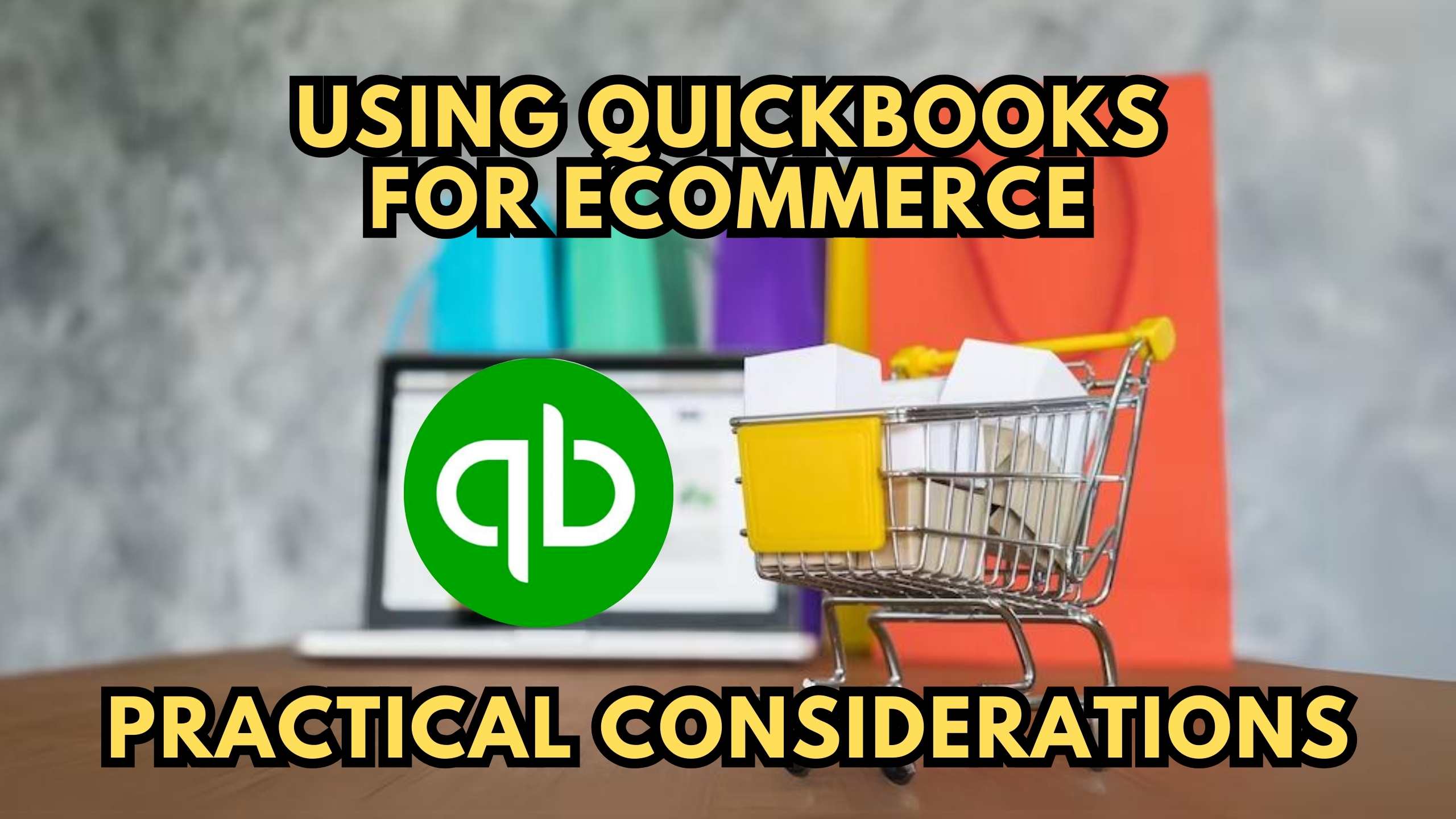Using QuickBooks for Ecommerce: Practical Considerations


Using QuickBooks for Ecommerce: Practical Considerations
Ecommerce businesses require efficient financial management, and QuickBooks emerges as a robust solution. In this insightful discussion, we’ll explore the practical considerations of using QuickBooks for ecommerce operations, shedding light on its features, benefits, and integration capabilities.
QuickBooks Essentials for Ecommerce Success
1. Overview of QuickBooks Integration
Integrating QuickBooks with ecommerce platforms like Shopify or WooCommerce streamlines financial processes. This integration ensures seamless data flow, automating tasks such as order tracking, inventory management, and financial reporting.
2. Financial Visibility and Reporting
QuickBooks provides in-depth financial visibility, allowing ecommerce businesses to generate insightful reports. With a clear overview of revenue, expenses, and profit margins, businesses can make informed decisions to optimize their financial strategies.
3. Inventory Management Efficiency
Ecommerce success relies on effective inventory management. QuickBooks simplifies this process by syncing inventory data in real-time. This ensures accurate tracking of stock levels, preventing overselling or stockouts that can impact customer satisfaction.
Relevant SaaS Products:
- Shopify: Seamlessly integrate your ecommerce store with QuickBooks through Shopify, ensuring smooth data flow for orders, products, and customer information.
- WooCommerce: As a WordPress plugin, WooCommerce enhances QuickBooks integration, providing a comprehensive ecommerce solution with flexibility and customization options.
- Xero: Complement QuickBooks with Xero’s powerful accounting features, allowing for a more tailored approach to financial management.
- Avalara: Simplify tax compliance by integrating Avalara with QuickBooks, ensuring accurate and automated tax calculations for ecommerce transactions.
- Stripe: Enhance payment processing efficiency by integrating Stripe with QuickBooks, facilitating seamless and secure online transactions.
Conclusion: Ecommerce Finances with QuickBooks
In conclusion, using QuickBooks for ecommerce proves to be a strategic choice for businesses seeking financial efficiency. The seamless integration with various SaaS products enhances its capabilities, providing ecommerce entrepreneurs with a comprehensive solution for streamlined financial management.
Optimize Your Ecommerce Finances with Subscribed.fyi!
Ready to elevate your ecommerce financial game? Subscribed.fyi offers exclusive deals on essential SaaS tools. Sign up for free to unlock secret deals and revolutionize your ecommerce financial operations. Make informed decisions, save costs, and propel your business towards financial success.
Relevant Links:





